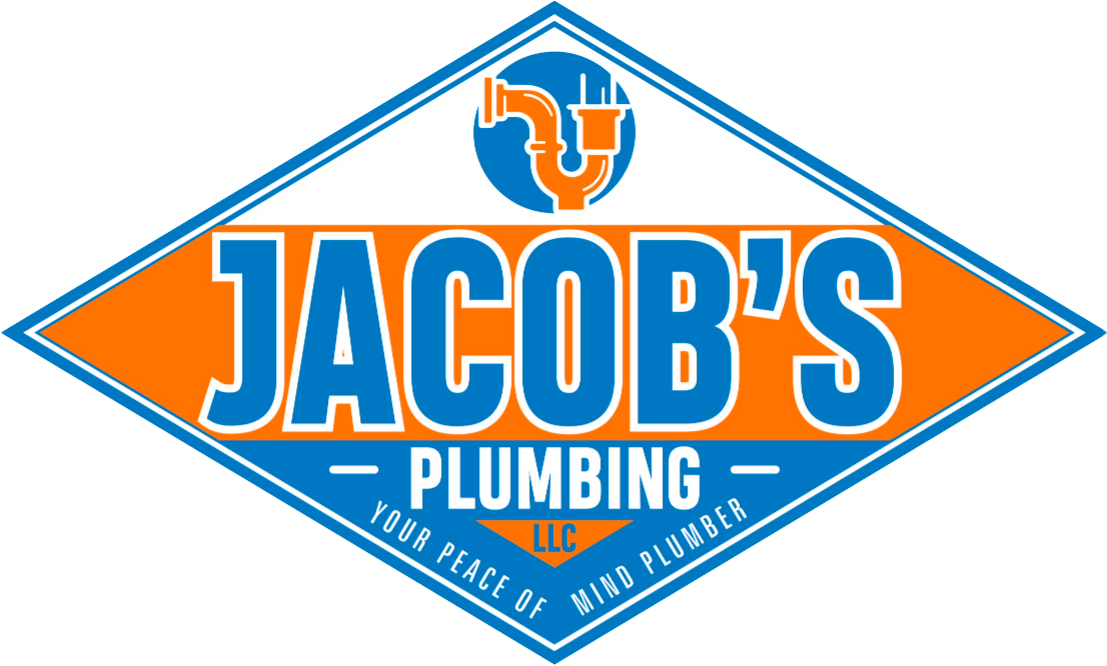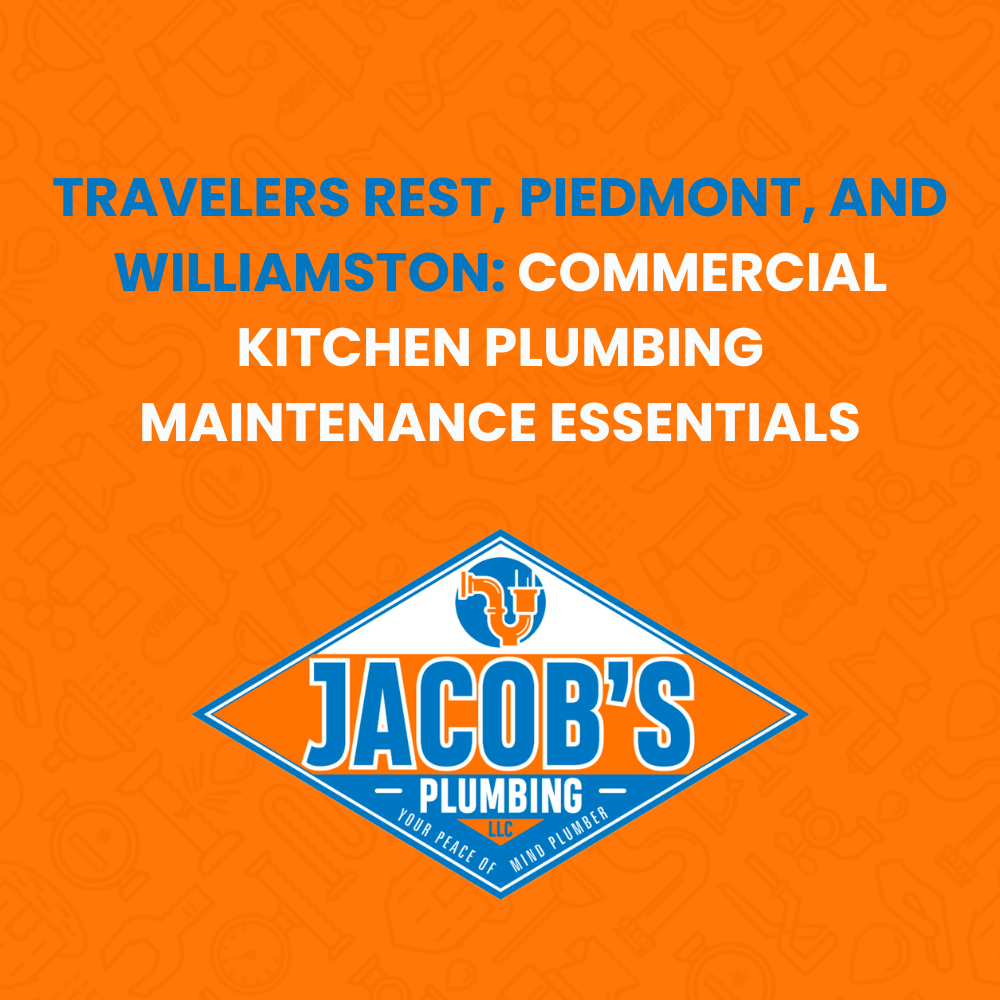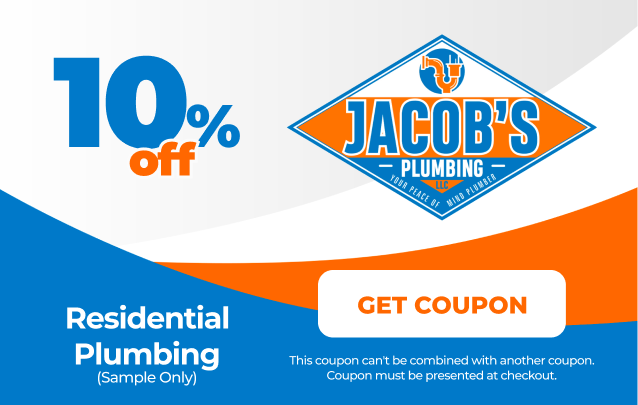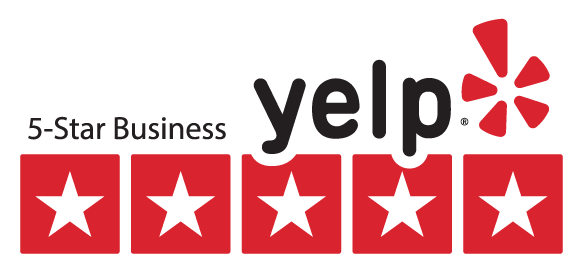Restaurant owners in Travelers Rest, Piedmont, and Williamston face unique challenges in maintaining commercial kitchen plumbing systems that must handle intensive daily use while meeting strict health department requirements. From the farm-to-table establishments near Furman University to family restaurants serving mill village communities, proper plumbing maintenance keeps businesses profitable and compliant.
Understanding Commercial Kitchen Demands
Commercial kitchens place extraordinary demands on plumbing systems that residential applications never experience. High-temperature water usage, grease-laden waste streams, and constant operation create maintenance requirements that differ significantly from residential plumbing needs.
Volume and Temperature Stress: Restaurant kitchens use hundreds of gallons of hot water daily for cooking, cleaning, and sanitizing. This constant high-temperature operation stresses pipes, joints, and fixtures in ways that can cause premature failure without proper maintenance. Professional commercial plumbing systems require specialized knowledge of commercial-grade components and local building codes.
Grease and Food Waste Challenges: Even with proper grease trap maintenance, commercial kitchen drains handle significantly more fats, oils, and food particles than residential systems. These substances cool and solidify in drain lines, creating blockages that can shut down operations during peak service times.
Regulatory Compliance Requirements: Health departments throughout Anderson and Greenville Counties maintain strict requirements for commercial kitchen plumbing. Proper installation, maintenance, and documentation prevent costly violations that can impact operating permits and customer confidence.
Geographic Considerations for Local Restaurants
Travelers Rest Establishments: The growing restaurant scene in Travelers Rest, particularly near the Swamp Rabbit Trail, attracts both locals and tourists. These businesses often occupy converted buildings that may require specialized plumbing upgrades to meet commercial kitchen demands. Older building infrastructure can present challenges for proper drainage slopes and venting requirements.
Piedmont Area Restaurants: Businesses in historic Piedmont may operate in buildings with vintage plumbing infrastructure that requires careful integration with modern commercial equipment. The town’s industrial heritage means some buildings have unusual drainage configurations that need professional assessment for commercial kitchen conversion.
Williamston Commercial Kitchens: Restaurant businesses serving this rural community often rely on well water systems that require additional filtration and treatment for commercial food service applications. Professional water quality management becomes critical for businesses using well water in food preparation and cleaning operations.
Essential Maintenance Systems for Restaurant Success
Grease Trap Management: Proper grease trap sizing, installation, and maintenance prevent drainage emergencies that can close restaurants during peak revenue periods. Local health departments require regular pumping schedules, but optimal maintenance frequency depends on cooking volume, menu types, and seasonal business variations.
Undersized grease traps create constant maintenance headaches and regulatory compliance issues. Professional evaluation can determine whether existing systems meet current business demands or require upgrading for reliable operation.
High-Temperature Drainage Systems: Commercial dishwashers and sanitizing equipment discharge water at temperatures that stress standard drainage components. Proper pipe materials and installation techniques prevent joint failures that can create expensive emergency repairs during service hours.
When drainage problems affect multiple kitchen stations, comprehensive system evaluation can identify whether issues stem from individual equipment connections or main line problems that require immediate attention.
Floor Drain Maintenance: Commercial kitchen floor drains handle continuous water flow from cleaning operations, equipment discharge, and occasional spills. These drains must maintain proper flow while preventing backups that create health code violations and operational disruptions.
Regular professional cleaning removes accumulated debris and ensures proper drainage during heavy cleaning operations. Floor drain backups during busy service periods can force temporary closures that impact revenue and customer relationships.
Equipment-Specific Plumbing Requirements
Commercial Ice Machines: These units require dedicated water supply and drainage that meets manufacturer specifications while complying with local plumbing codes. Improper installation or maintenance can affect ice quality and machine longevity while creating potential health code violations.
Steam Equipment and Combi Ovens: Professional-grade cooking equipment generates substantial steam and condensate that requires proper drainage and venting. Inadequate drainage systems can cause equipment failure and create humid conditions that promote mold and bacterial growth.
Automatic Warewashing Systems: Commercial dishwashers require specialized drainage connections that handle high-temperature discharge while maintaining proper chemical concentrations for sanitizing effectiveness. Professional installation ensures optimal cleaning results while protecting drainage infrastructure.
Preventive Maintenance Scheduling
Daily Operations Monitoring: Train kitchen staff to recognize early warning signs of plumbing problems including slow drainage, unusual odors, or water backup situations. Early identification prevents minor issues from becoming major operational disruptions.
Weekly Professional Inspections: Regular professional evaluation of high-use systems can identify developing problems before they affect service. Weekly inspections during busy seasons help maintain optimal operation when revenue is highest.
Monthly System Maintenance: Comprehensive monthly maintenance including drain cleaning, grease trap evaluation, and equipment connection inspection prevents accumulated problems that can cause unexpected failures.
Seasonal Deep Cleaning: Quarterly professional deep cleaning addresses accumulated buildup in main drainage lines and ensures optimal system performance during peak business seasons.
Emergency Response Planning
After-Hours Service Availability: Restaurant plumbing emergencies don’t respect business hours. Drainage backups during dinner service or equipment failures before breakfast rush require immediate professional response to minimize revenue loss.
Parts and Equipment Inventory: Professional commercial maintenance programs include access to commercial-grade replacement parts that may not be readily available through standard supply channels. This ensures rapid repair completion when problems occur.
Regulatory Compliance Support: Professional commercial plumbing service includes knowledge of local health department requirements and can provide documentation needed for inspections and permit renewals.
Technology Solutions for Modern Restaurants
Automated Monitoring Systems: Modern commercial kitchens can benefit from automated monitoring of water usage, temperature, and drainage flow rates. These systems provide early warning of developing problems while documenting compliance with operational requirements.
Remote Diagnostics: Professional diagnostic technology can identify drainage problems without disrupting kitchen operations. Camera inspection of main lines can be scheduled during closed hours to minimize business impact.
Efficiency Optimization: Professional evaluation of water usage patterns can identify opportunities for conservation that reduce operating costs while maintaining service quality and regulatory compliance.
Investment Protection Strategies
Proper Installation Standards: Commercial kitchen plumbing installation requires specialized knowledge of equipment requirements, local codes, and operational demands. Professional installation prevents future problems while ensuring warranty coverage and regulatory compliance.
Documentation and Record Keeping: Proper maintenance documentation supports warranty claims, insurance requirements, and regulatory compliance while providing valuable operational data for business planning.
Upgrade Planning: Professional evaluation can identify when existing systems approach capacity limits, allowing planned upgrades during convenient scheduling rather than emergency replacement during peak business periods.
Restaurant success depends on reliable kitchen operations that meet customer expectations while maintaining regulatory compliance. For businesses in Travelers Rest, Piedmont, and Williamston, professional commercial kitchen plumbing maintenance protects investments while ensuring consistent operational capability.Jacob’s Plumbing understands the unique demands facing restaurant owners throughout Anderson County. Our experience with commercial kitchen requirements, local building codes, and health department regulations ensures your business maintains optimal operation while protecting your investment in kitchen infrastructure.





